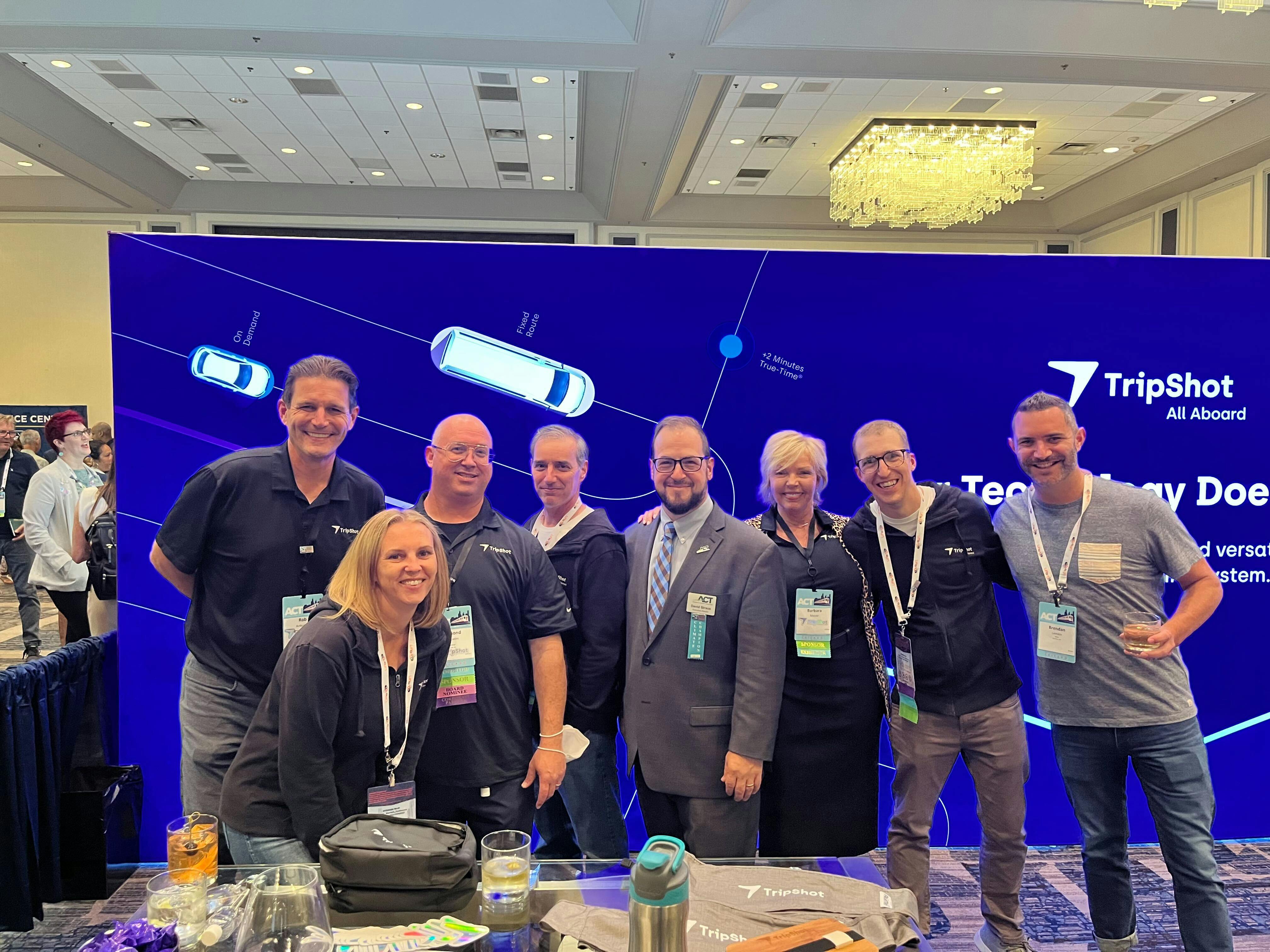
Recap: ACT International Conference 2022
Discussing the future of transportation demand management with hundreds of industry professionals.
ACT International
This year the Association for Commuter Transportation (ACT) hosted over 500 TDM professionals from around the world in Chicago to discuss TDM and the commuter transportation industry. Attendees represented Fortune 500 companies, state/local departments of transportation (DOTs), metropolitan planning organizations (MPOs), transit agencies, transportation service providers, consultants, and many other stakeholders working to improve transportation options for commuters and the sustainability of their communities.
TripShot was delighted to sponsor and exhibit at this annual event, meet with our customers and learn more about additional commuter transportation systems.
5 Key Takeaways
Our team met with attendees, participated in sessions and discussed how we solve problems in commuter transportation. Here are some of our key takeaways:
- Prioritize Sustainability
Commuters are concerned about climate change. They look to their employers to have climate action goals and to lead with sustainability efforts. Commuter transportation systems often provide a transportation option when there isn’t one besides driving alone to and from campus. TDM leaders must highlight the positive climate impacts of shared and more efficient commuter transportation. - Show Riders You Care
Riders have been through a lot since the start of COVID-19. Companies that want employees to come back onto their corporate or higher education campus must emphasize that they understand employee concerns. Improving commuter transportation options is one way to show that you’re prioritizing your employees. Micro-transit or on-demand services have seen success as campuses look to provide riders with flexible options. - Anticipate Continued Flexible and Hybrid Work Schedules
The trends of remote and hybrid work schedules aren’t going away any time soon. This only makes it more important to use technology that is flexible enough to accommodate changing ridership patterns while also offering transportation options that improve rider satisfaction, reduce parking demand and support climate action goals. - Ensure Support from Organizational Leaders
There are important things to say when you have limited time with top-decision makers. TDM professionals need to cultivate interest and trust with organizational leaders to ensure a smooth process of establishing commuter transit options. - Explore Different Ways to Develop a Campus Transportation Plan
Every campus transportation system is different. TDM plans must focus on institutional goals, strategies to reduce single-occupancy vehicle trips and expanding choices for commuters. These plans should also include input from community members and internal stakeholders. Plans should be assessed through data collection and community engagement.
Moving Commuters Forward
The knowledge shared at ACT International will help to move commuters forward as transportation continues to meet the changing demands of hybrid work schedules and the evolving needs of riders. TDM leaders in the US, Canada and elsewhere will go forth and bring best practices back to their campuses and communities.
More about ACT
TripShot is a proud member of ACT, the premier organization and leading advocate for commuter transportation and transportation demand management (TDM) professionals. ACT strives to create an efficient multimodal transportation system by empowering the people, places, and organizations working to advance TDM in order to improve the quality of life of commuters, enhance the livability of communities, and stimulate economic activity.